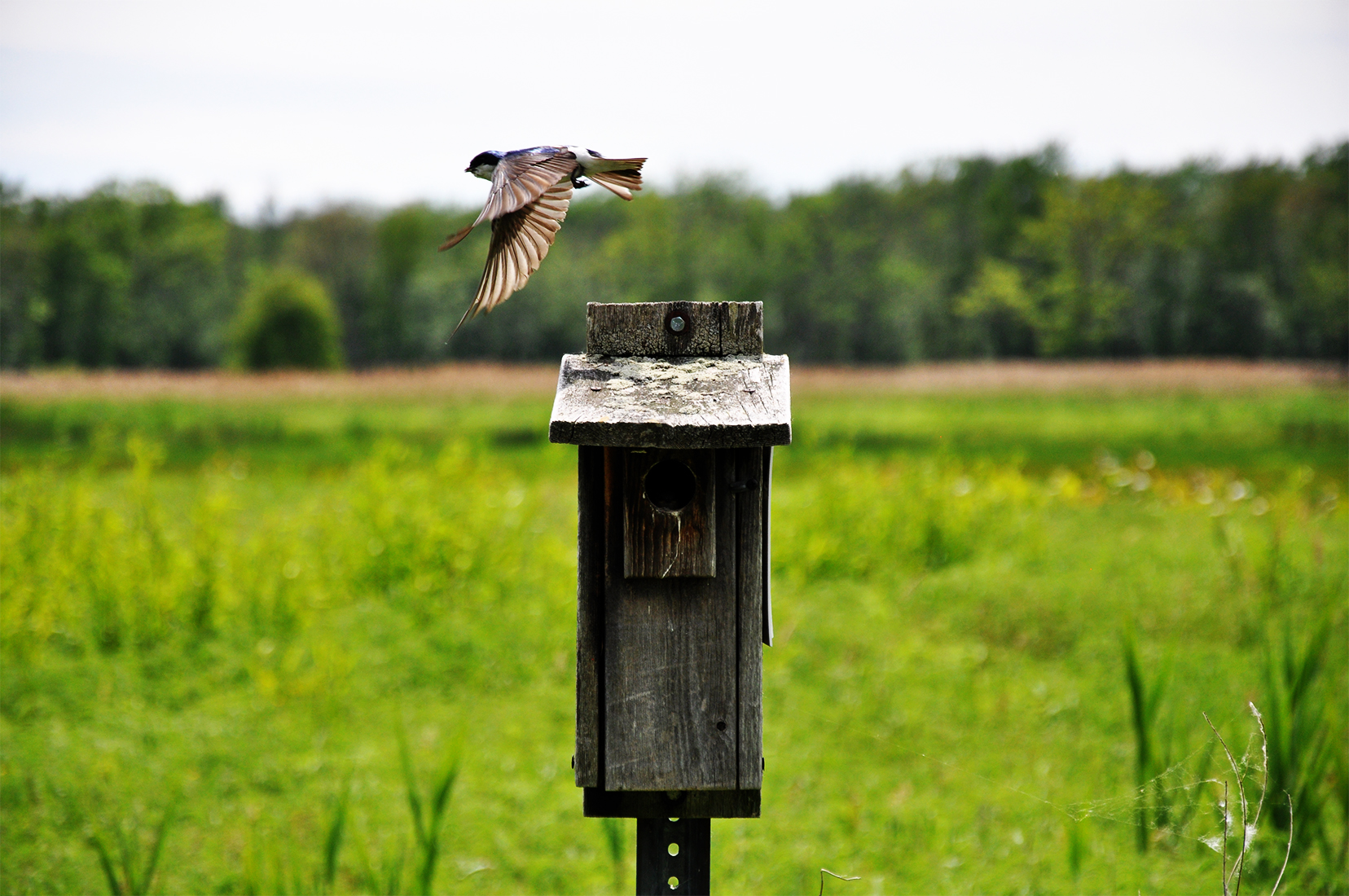
A tree swallow, birdhouse and spiderweb at Montezuma National Wildlife Refuge in New York. Photo by Michael Aaron Gallagher.
If you ever find yourself crossing New York State on the Thruway, you may notice a stretch of highway surrounded by marshlands known as the Montezuma National Wildlife Refuge. The importance of this region to migratory birds and other wildlife cannot be overstated. In my study of the marsh biome inside the Biosphere 2 Center (click here to read more), I learned that wetlands are often destroyed by commercial developers, in spite of the enormous ecological contribution they have both in terms of mitigating climate change and maintaining the biodiversity of the planet.
The Montezuma National Wildlife Refuge is a treasure both for wildlife photographers and nature lovers alike. The 10,000 acre complex is home to more than 300 species of birds, including peregrine falcons, bald eagles, woodpeckers, cardinals, sandhill cranes, Canada geese and great blue herons.
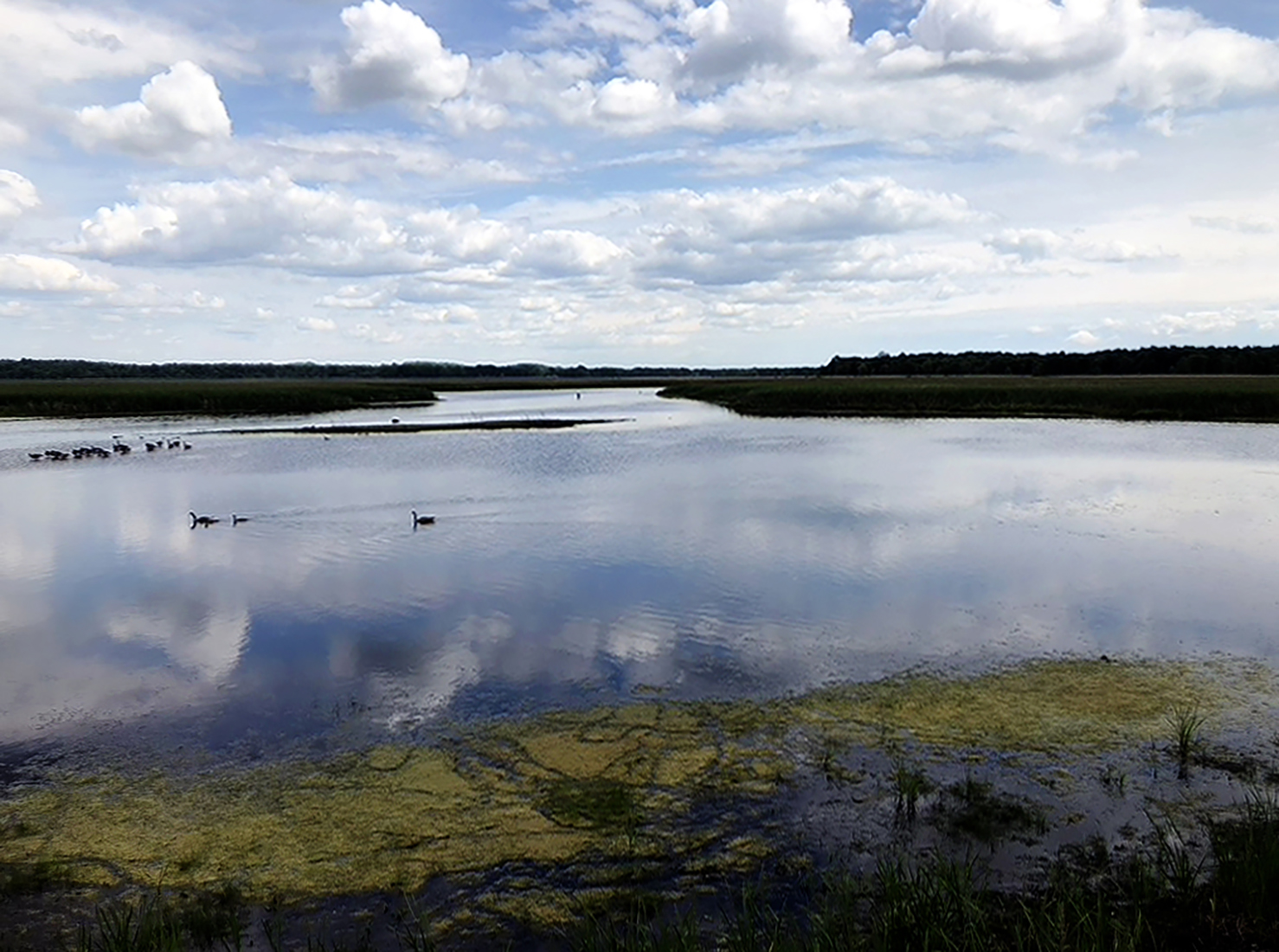
Waterfowl swimming at Montezuma National Wildlife Refuge in New York. Photo by Michael Aaron Gallagher.
As I stood outside the visitors center (which is located just off U.S. Route 20 in Seneca Falls) one afternoon in mid-June, I wondered if I would be able to photograph anything of interest to me that day. It was after the spring migration when tens of thousands of Canada geese flock to the area, many of the geese and bald eagles had spread out to other areas now that the weather was warm and I didn’t notice any unique creatures scurrying about. I was bored, staring at my cellphone. It was like so many nature hikes I had been on before, where all I saw was the path through the forest, my loud footsteps giving plenty of advanced warning to any creatures within earshot.
But then in that moment, as I stood still, I heard something dart past my head. To my surprise, when I looked up, I saw a ruby-throated hummingbird hovering right in front of me. Then a second one. Then perhaps a third.
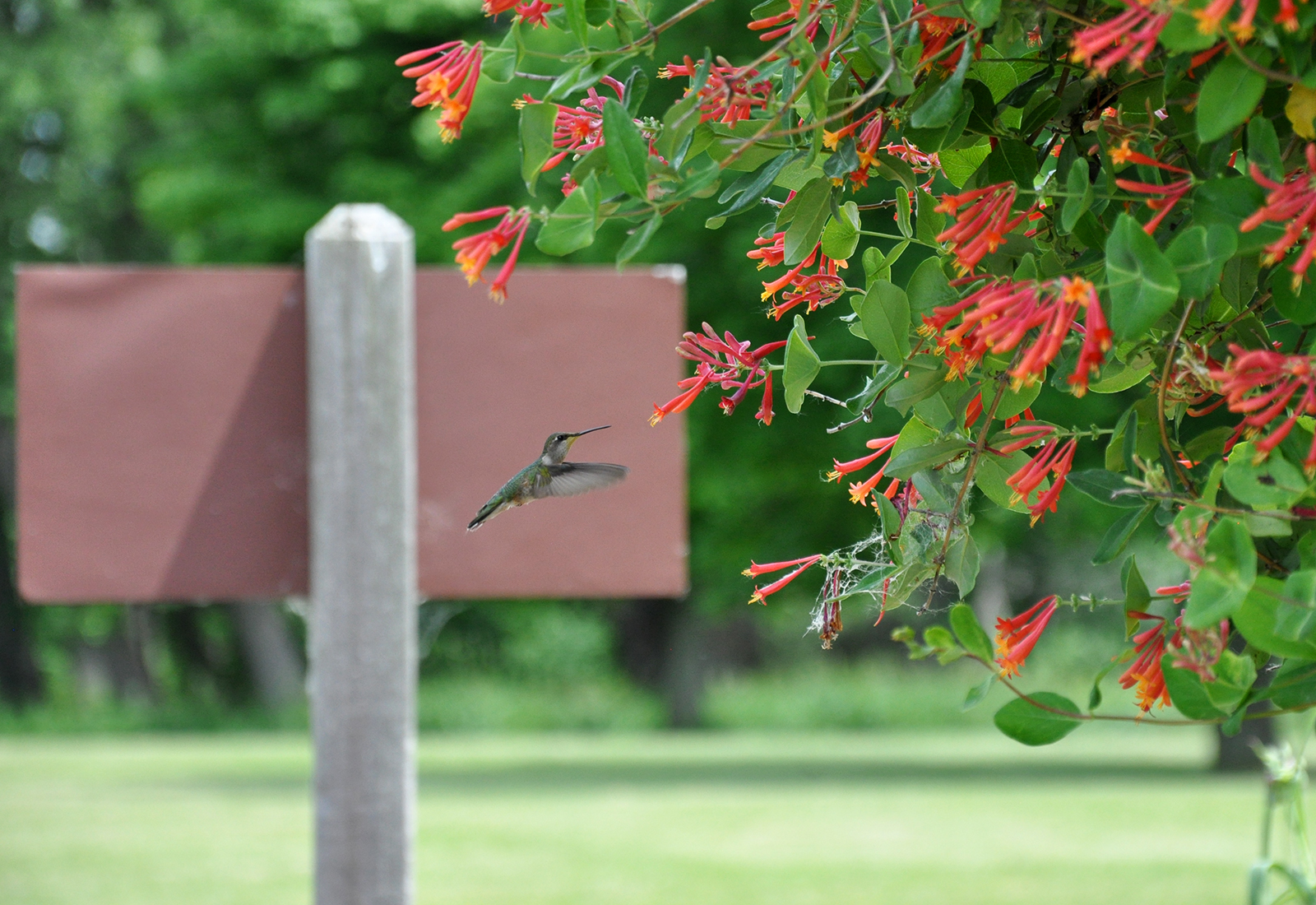
A Ruby-throated Hummingbird visits a Trumpet Honeysuckle bush at the Montezuma National Wildlife Refuge in New York. Photo by Michael Aaron Gallagher.
How long had they been flitting about the Trumpet Honeysuckle bush like little fairies, going from flower to flower, while I was oblivious to their presence? I was in awe. Sure, I have seen a hummingbird at a distance before, but this time it wasn’t at a zoo or visiting a bird feeder in someone’s backyard. They were wild and free.
I learned an important lesson that day: that nature is all around us, always. Whether you are in a city, the suburbs or a nature preserve, we just have to stand still and listen for it. Soon, with patience, you will begin to recognize the dance that has been going on around you, all along.
Below are some of the photographs I took on my first visit through the refuge. You can learn more about the artist Jay Seaman, whose impressive steel sculptures breathe new life into the landscape at his website: JamesSeaman.com. I look forward to hopefully returning again someday and sharing more pictures. Enjoy!
– Michael Aaron Gallagher
![]()
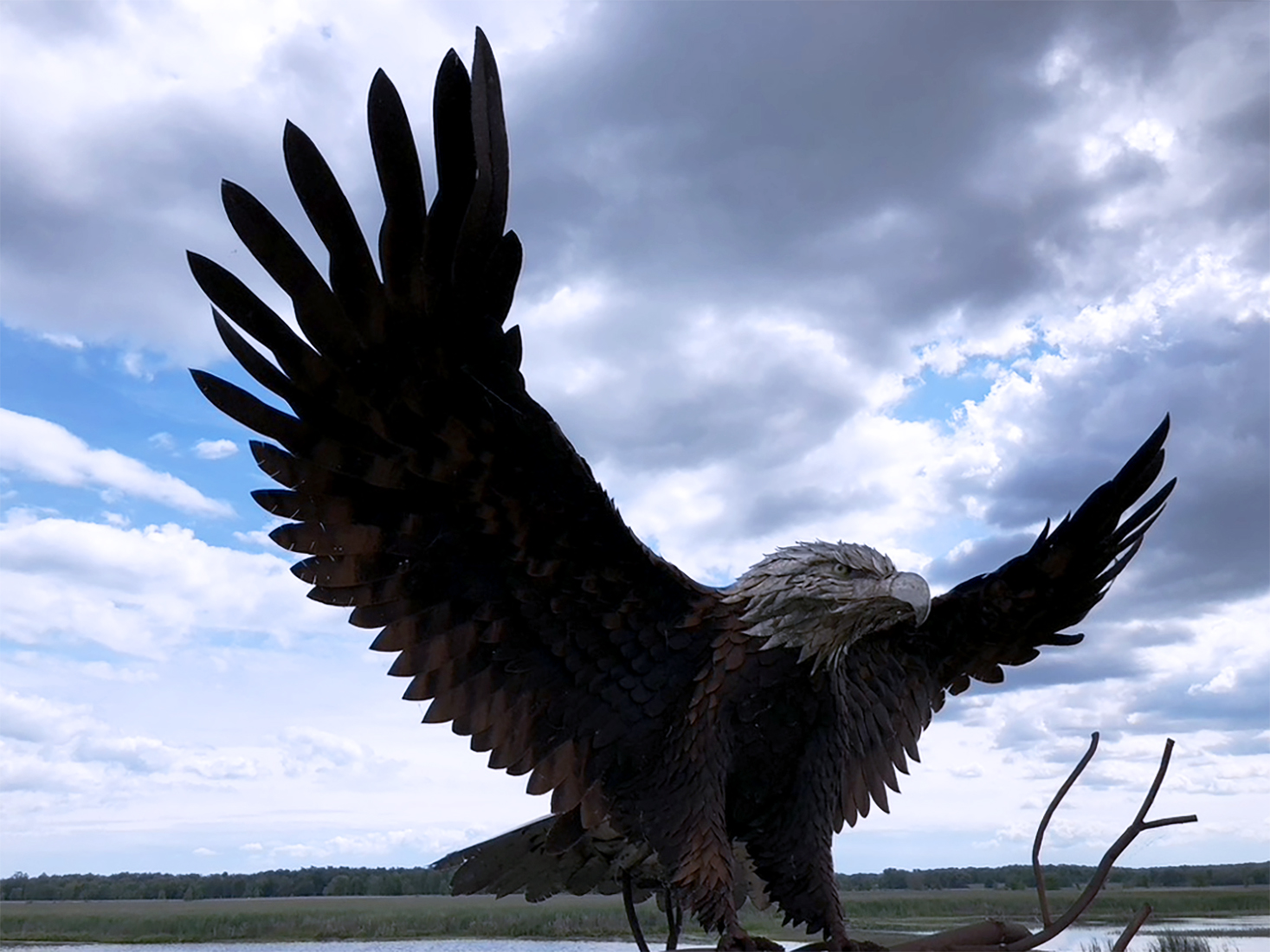
Giant Bald Eagle steel sculpture by Jay Seaman at the Montezuma National Wildlife Refuge in New York. Photo by Michael Aaron Gallagher.
![]()
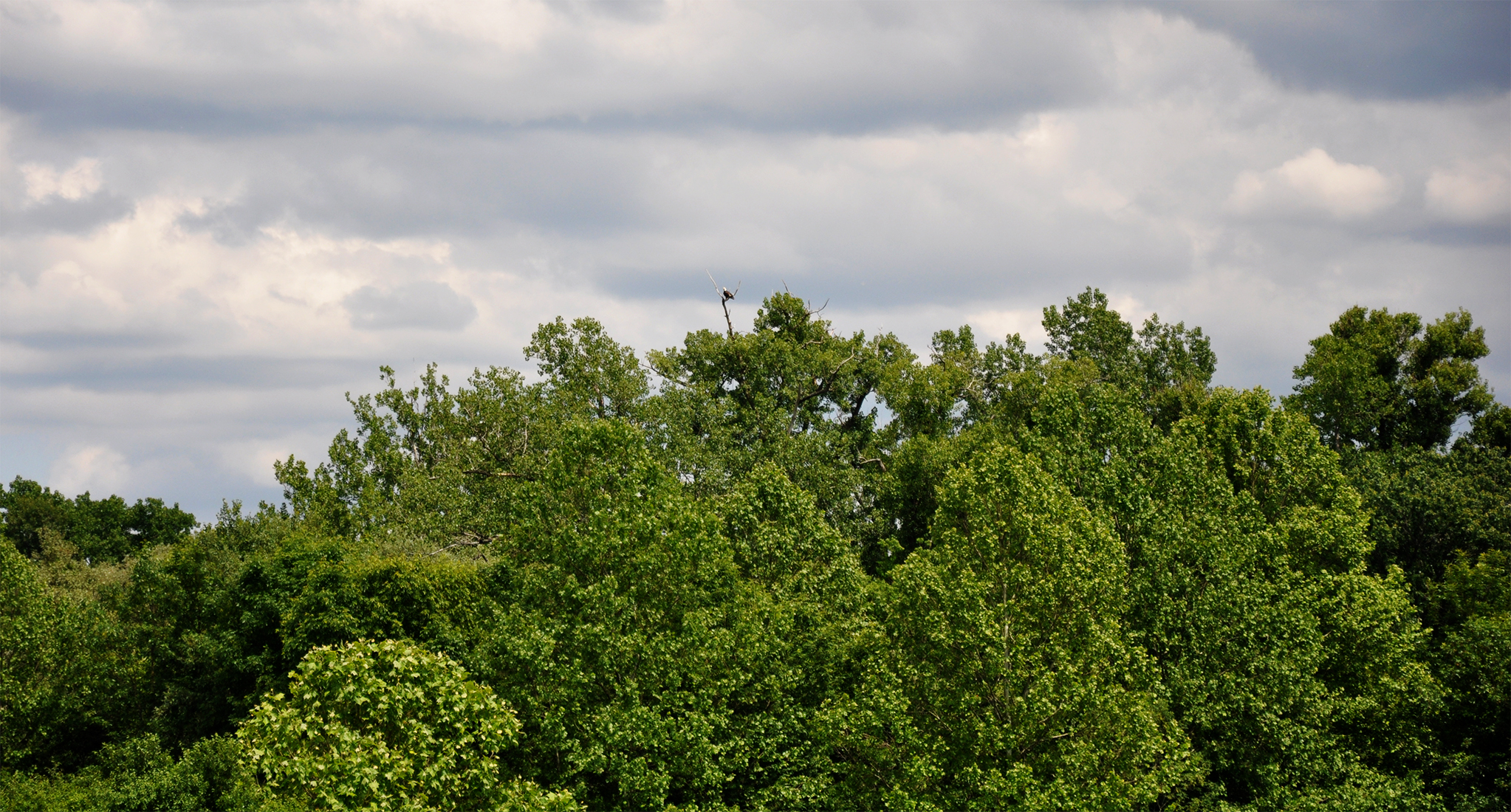
Off in the distance, a majestic bald eagle sits atop the highest perch at the Montezuma National Wildlife Refuge in New York. Photo by Michael Aaron Gallagher.
![]()
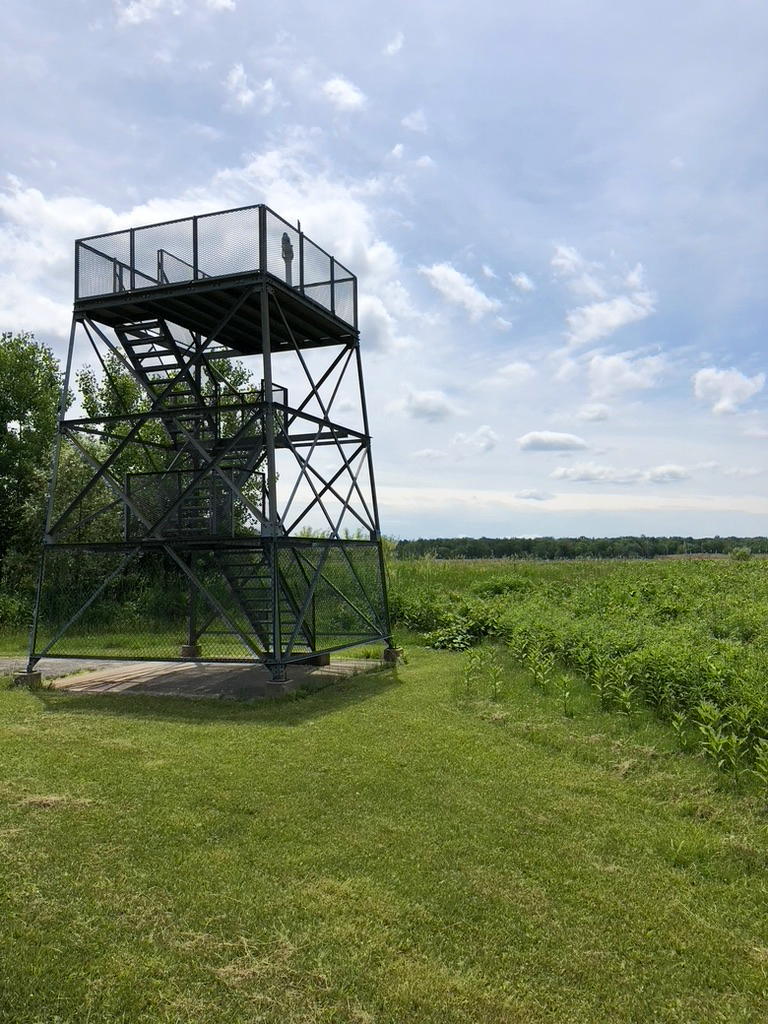
Lookout tower at Montezuma National Wildlife Refuge in New York. Photo by Michael Aaron Gallagher.
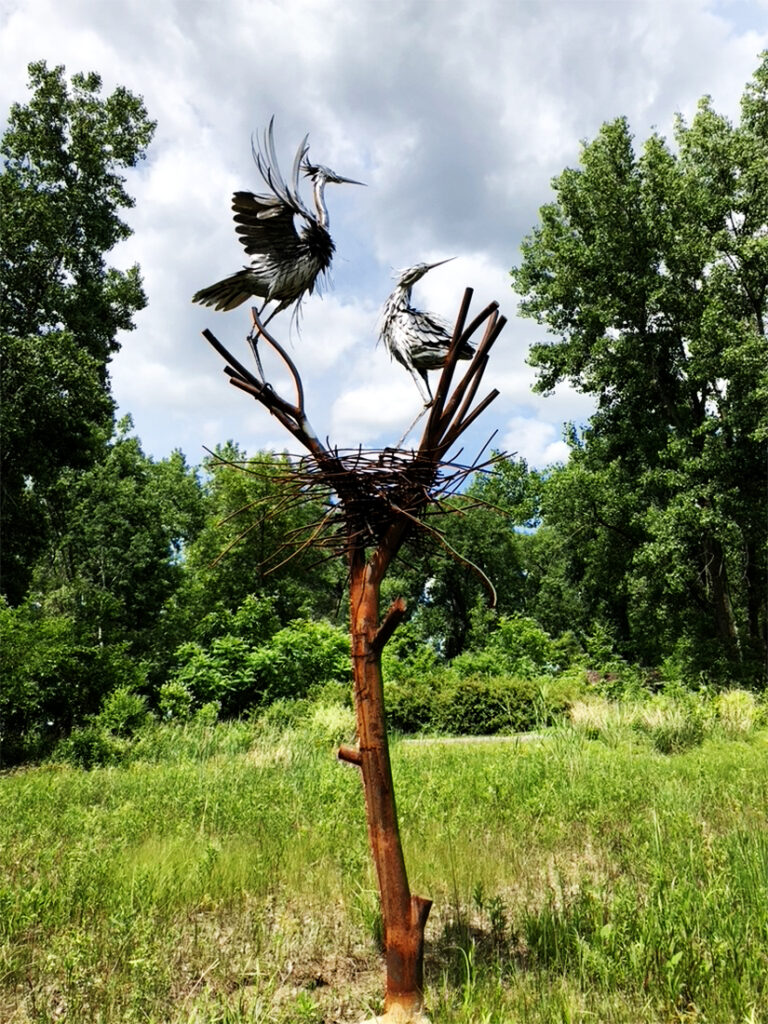
“The Herons Have Landed” steel sculpture by Jay Seaman at Montezuma National Wildlife Refuge. Photo by Michael Aaron Gallagher.
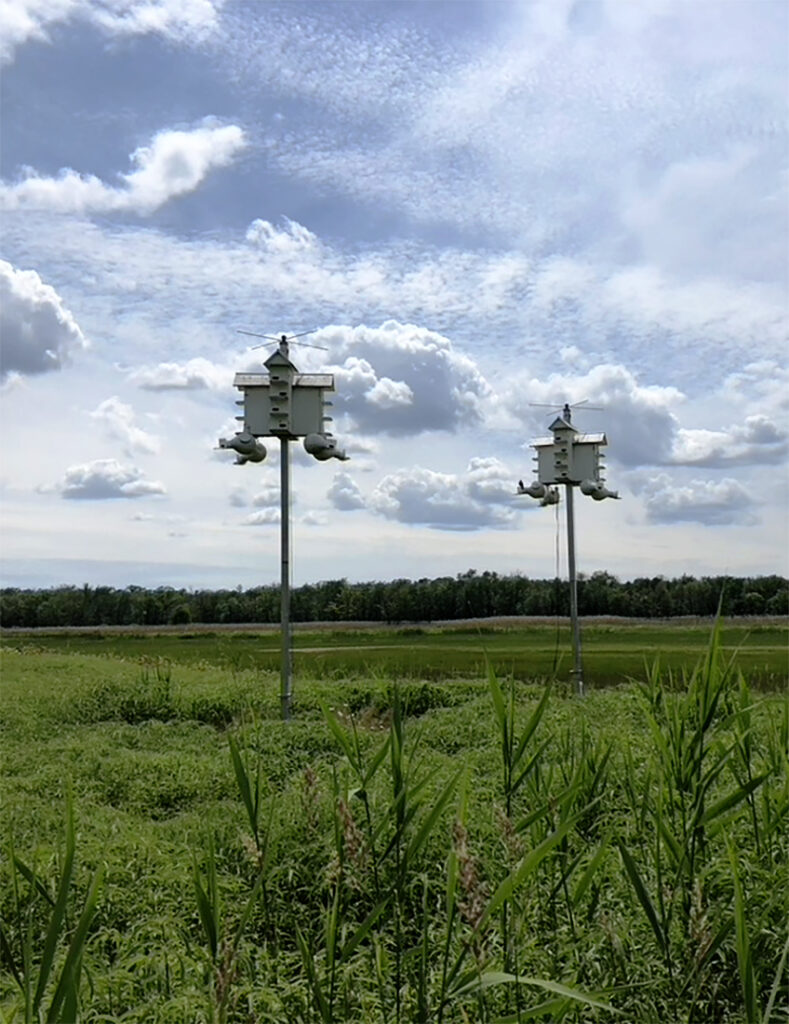
Bird houses at Montezuma National Wildlife Refuge in New York. Photo by Michael Aaron Gallagher.
![]()
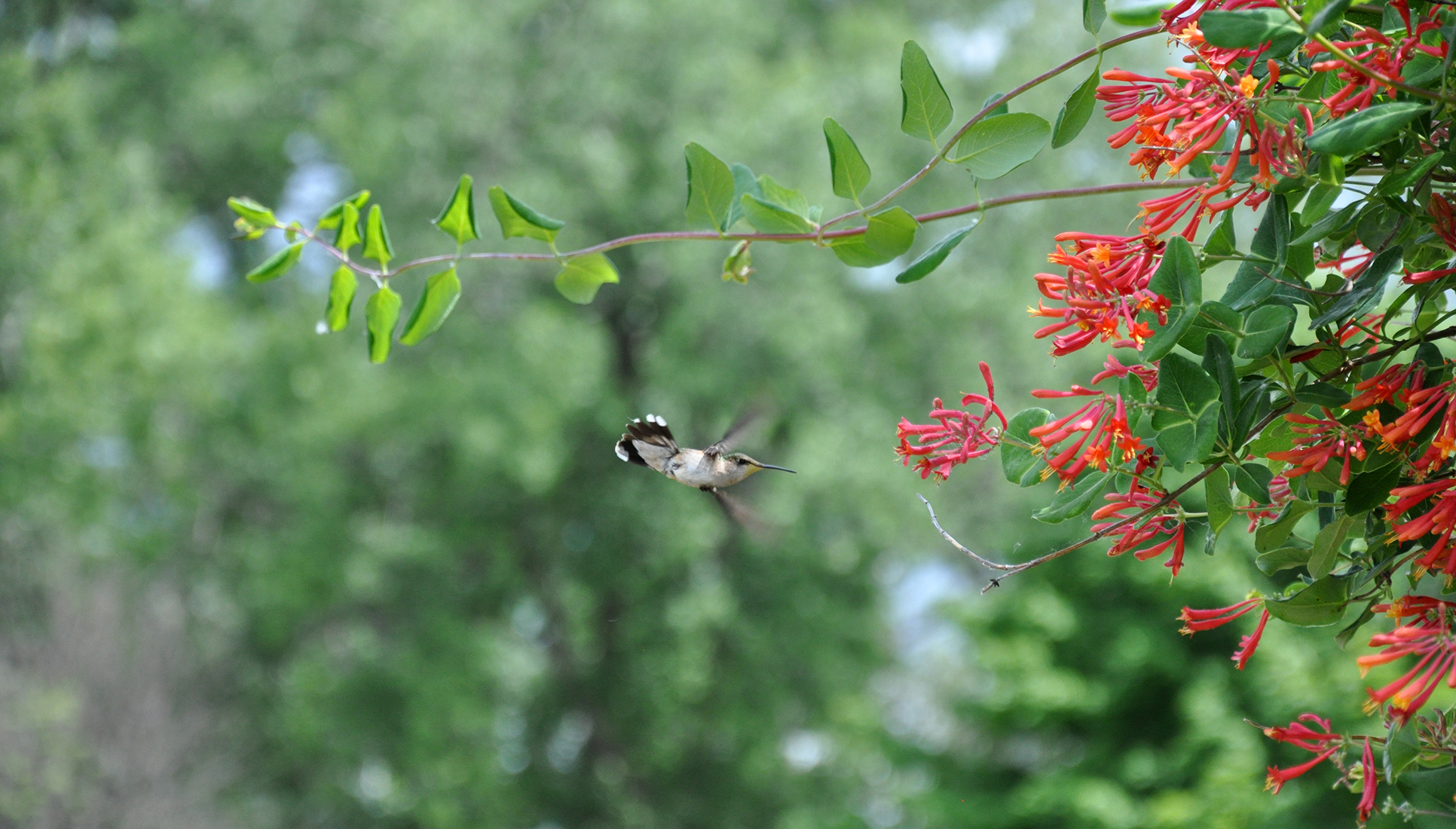
A Ruby-throated Hummingbird swooping at Montezuma National Wildlife Refuge in New York. Photo by Michael Aaron Gallagher.
![]()
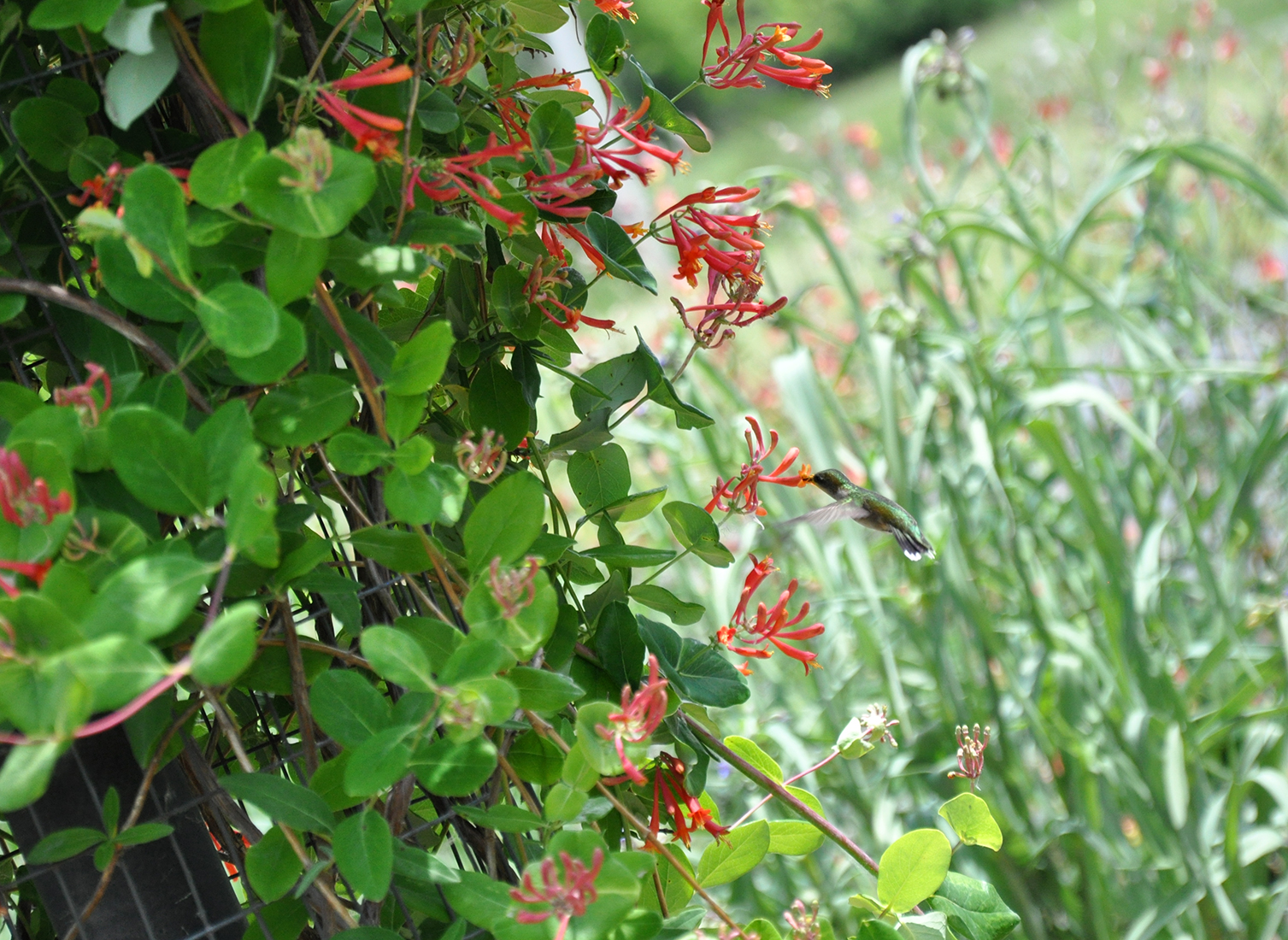
A Ruby-throated Hummingbird feeding at Montezuma National Wildlife Refuge in New York. Photo by Michael Aaron Gallagher.
![]()
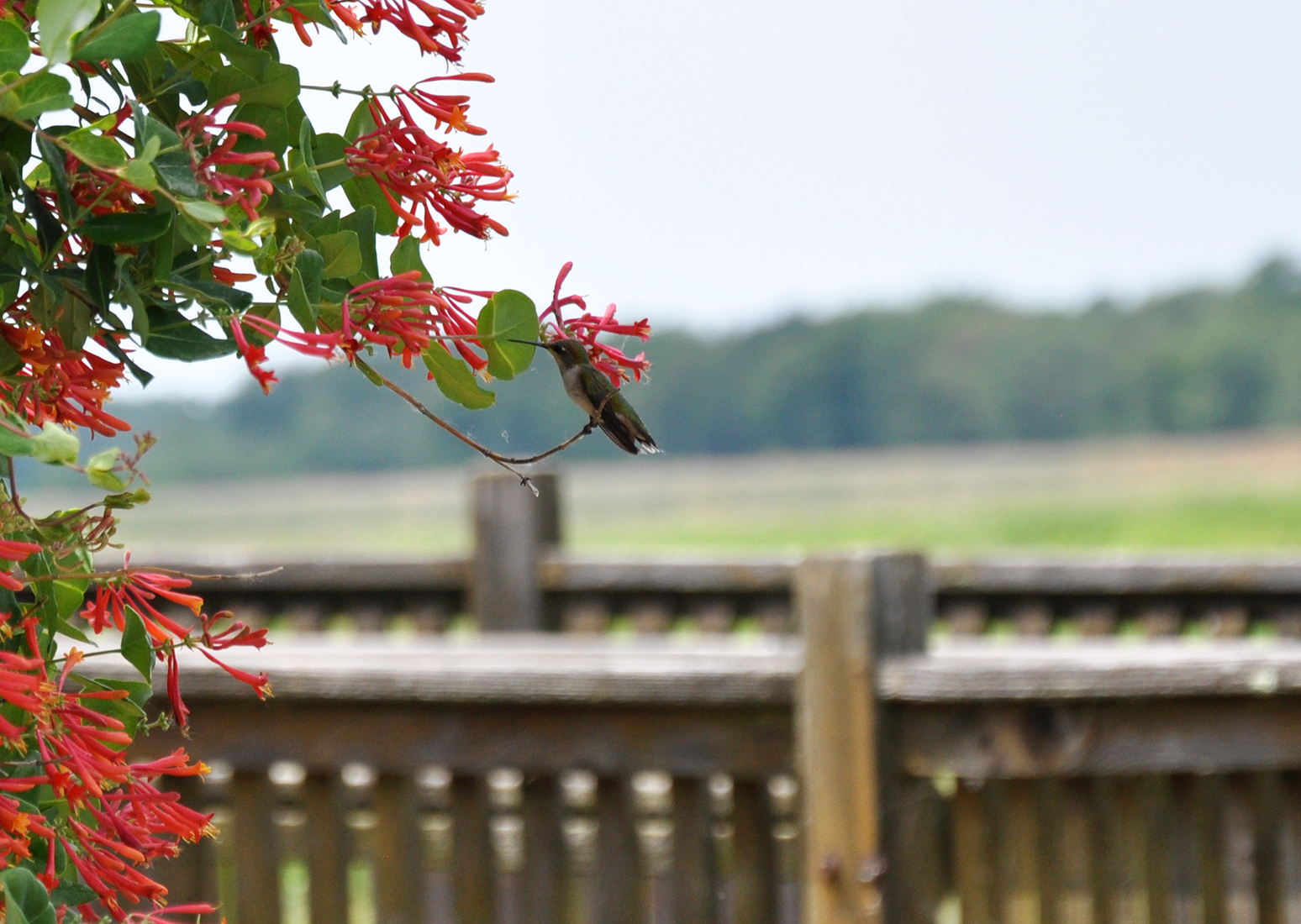
A Ruby-throated Hummingbird perched on a branch at Montezuma National Wildlife Refuge in New York. Photo by Michael Aaron Gallagher.
![]()
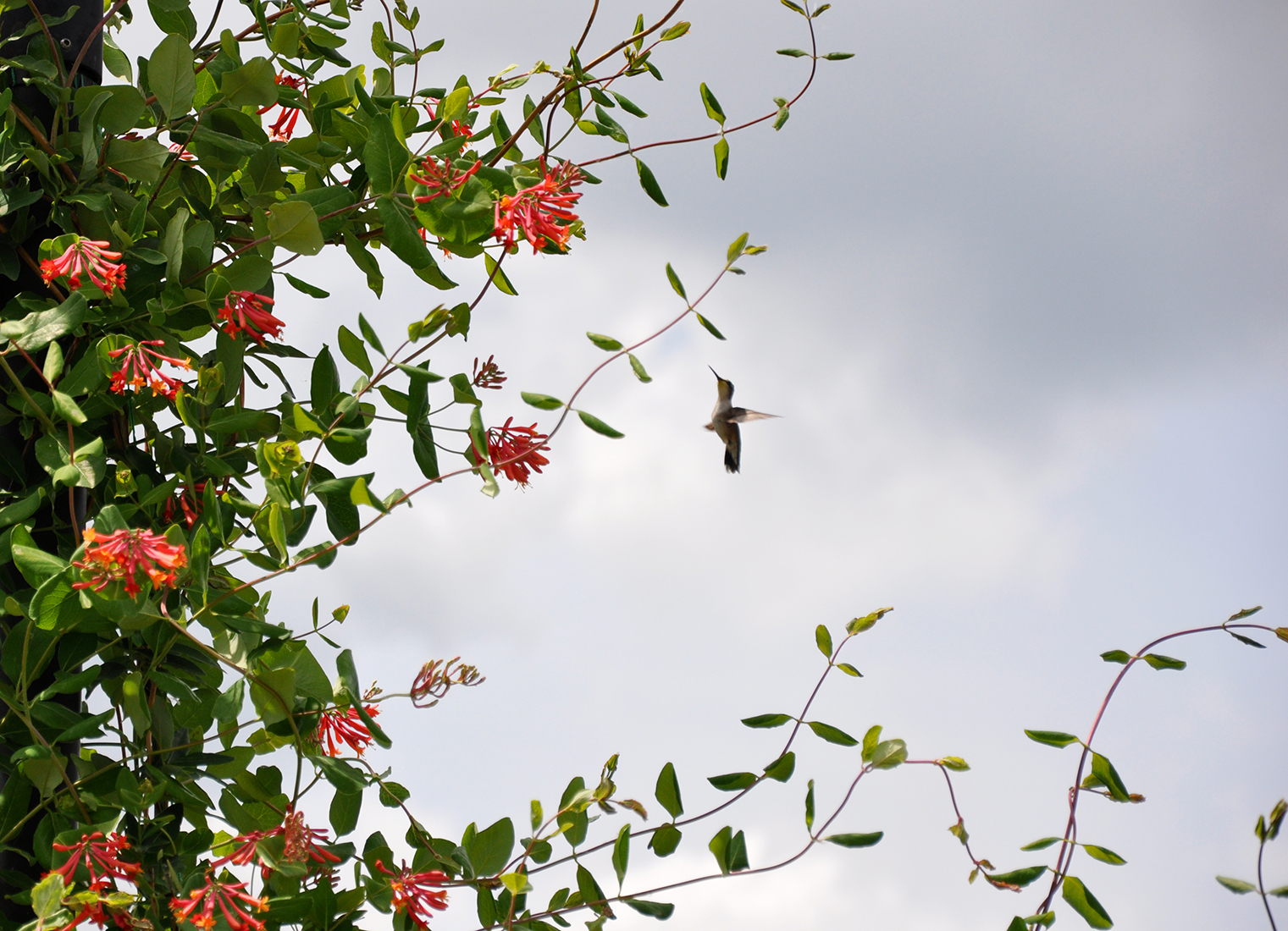
Hummingbird flying straight up at Montezuma National Wildlife Refuge in New York. Photo by Michael Aaron Gallagher.
![]()
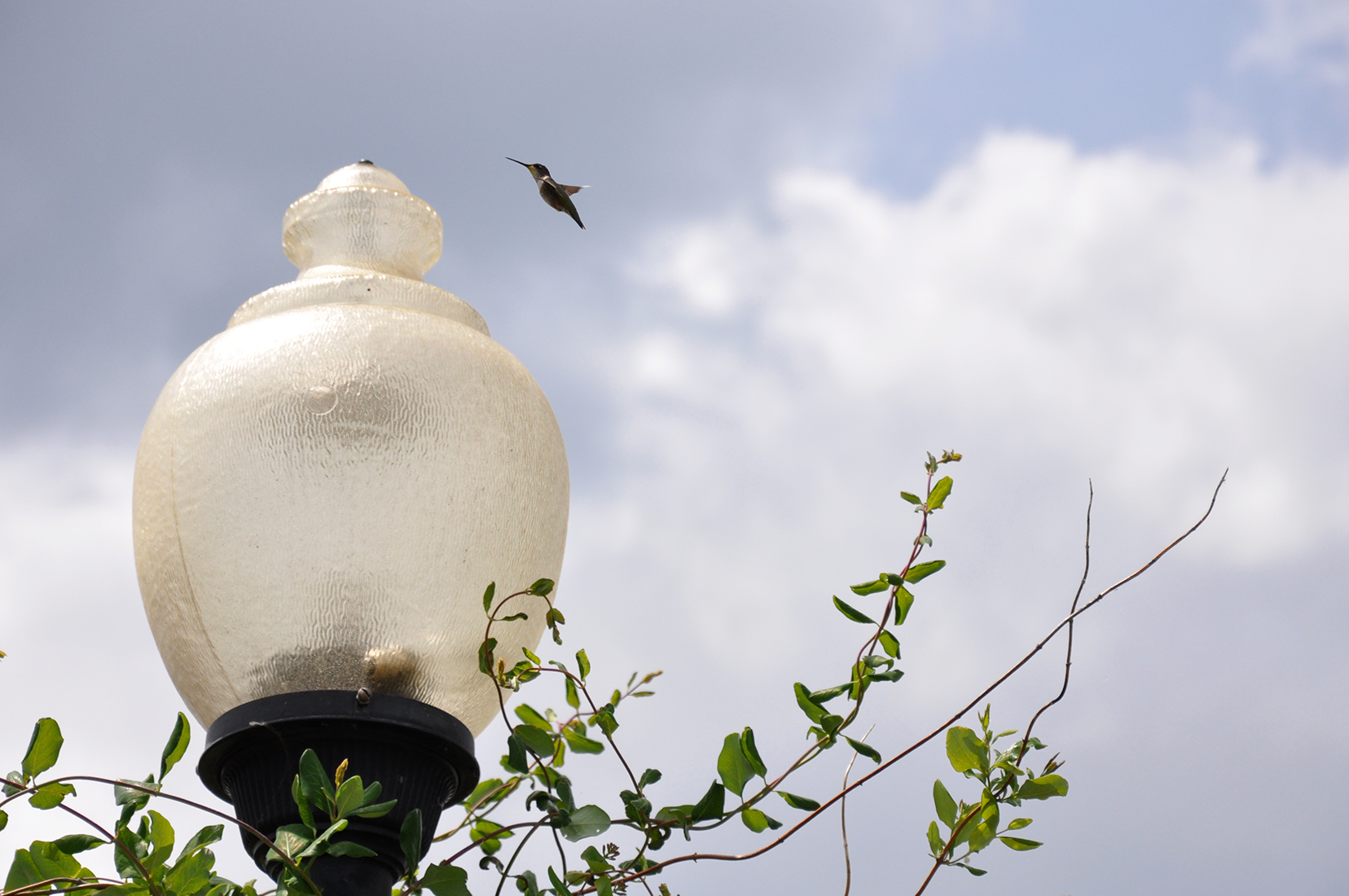
Although they say hummingbirds can’t soar, this picture gives the illusion that it is gliding over the lamp post at the Montezuma National Wildlife Refuge in New York. Photo by Michael Aaron Gallagher.
![]()
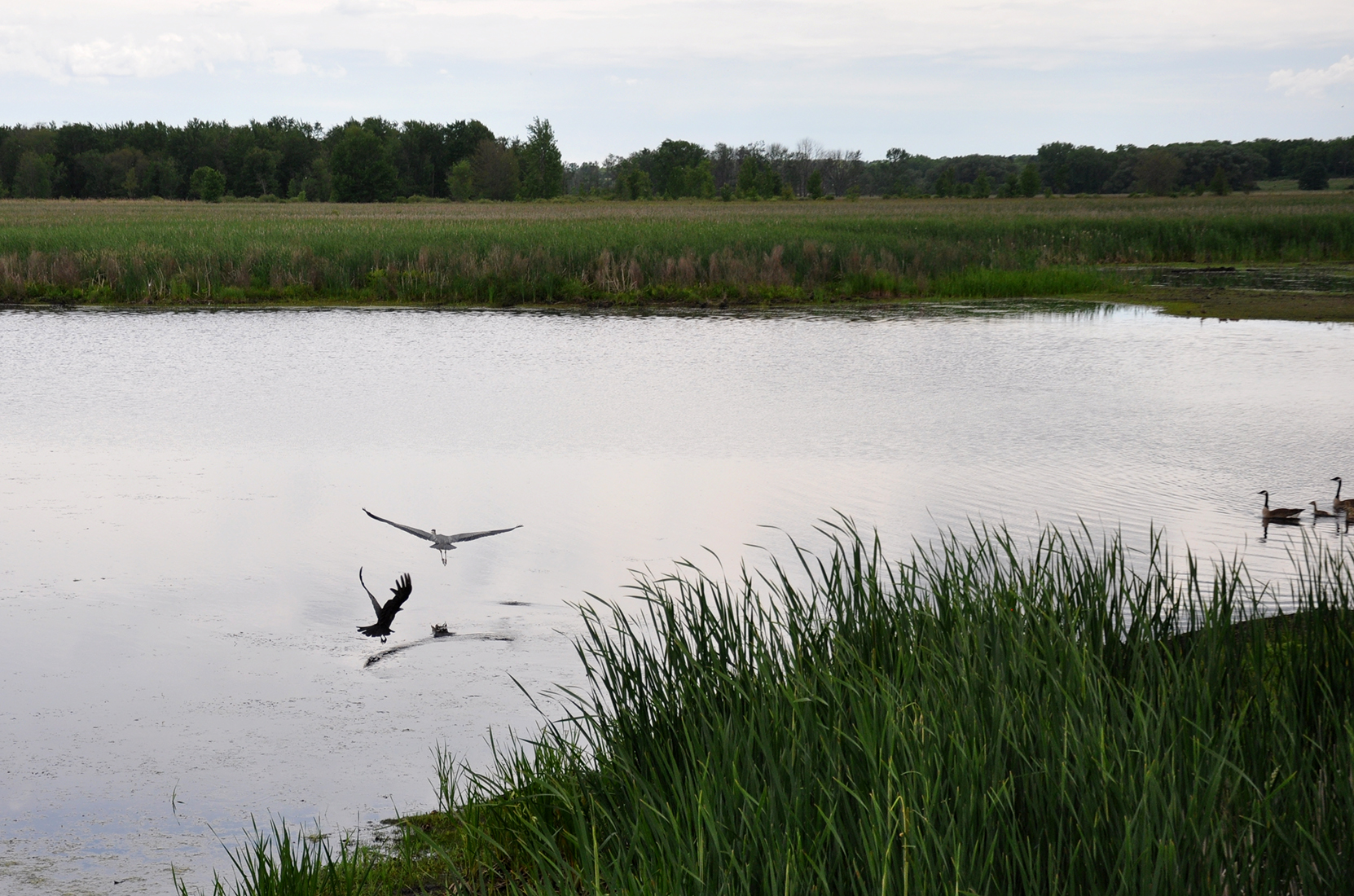
Three different species of birds co-existing at Montezuma National Wildlife Refuge. Photo by Michael Aaron Gallagher.
